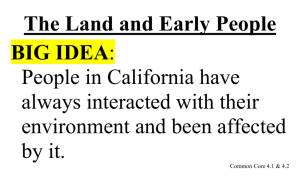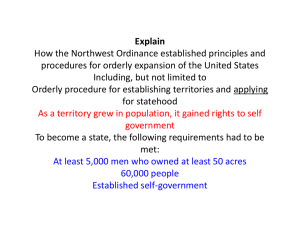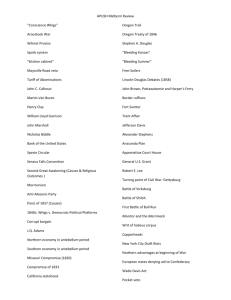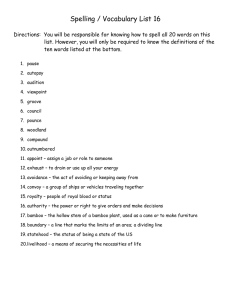"Eviromental Governance in Areas of Limited Statehood"
advertisement
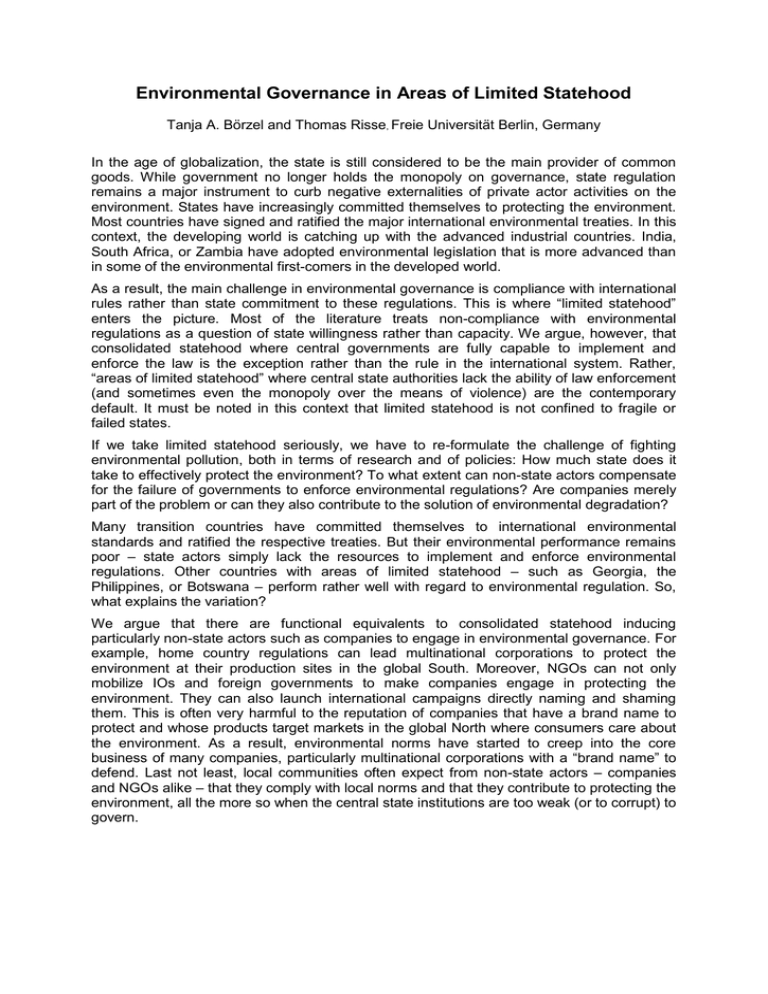
Environmental Governance in Areas of Limited Statehood Tanja A. Börzel and Thomas Risse, Freie Universität Berlin, Germany In the age of globalization, the state is still considered to be the main provider of common goods. While government no longer holds the monopoly on governance, state regulation remains a major instrument to curb negative externalities of private actor activities on the environment. States have increasingly committed themselves to protecting the environment. Most countries have signed and ratified the major international environmental treaties. In this context, the developing world is catching up with the advanced industrial countries. India, South Africa, or Zambia have adopted environmental legislation that is more advanced than in some of the environmental first-comers in the developed world. As a result, the main challenge in environmental governance is compliance with international rules rather than state commitment to these regulations. This is where “limited statehood” enters the picture. Most of the literature treats non-compliance with environmental regulations as a question of state willingness rather than capacity. We argue, however, that consolidated statehood where central governments are fully capable to implement and enforce the law is the exception rather than the rule in the international system. Rather, “areas of limited statehood” where central state authorities lack the ability of law enforcement (and sometimes even the monopoly over the means of violence) are the contemporary default. It must be noted in this context that limited statehood is not confined to fragile or failed states. If we take limited statehood seriously, we have to re-formulate the challenge of fighting environmental pollution, both in terms of research and of policies: How much state does it take to effectively protect the environment? To what extent can non-state actors compensate for the failure of governments to enforce environmental regulations? Are companies merely part of the problem or can they also contribute to the solution of environmental degradation? Many transition countries have committed themselves to international environmental standards and ratified the respective treaties. But their environmental performance remains poor – state actors simply lack the resources to implement and enforce environmental regulations. Other countries with areas of limited statehood – such as Georgia, the Philippines, or Botswana – perform rather well with regard to environmental regulation. So, what explains the variation? We argue that there are functional equivalents to consolidated statehood inducing particularly non-state actors such as companies to engage in environmental governance. For example, home country regulations can lead multinational corporations to protect the environment at their production sites in the global South. Moreover, NGOs can not only mobilize IOs and foreign governments to make companies engage in protecting the environment. They can also launch international campaigns directly naming and shaming them. This is often very harmful to the reputation of companies that have a brand name to protect and whose products target markets in the global North where consumers care about the environment. As a result, environmental norms have started to creep into the core business of many companies, particularly multinational corporations with a “brand name” to defend. Last not least, local communities often expect from non-state actors – companies and NGOs alike – that they comply with local norms and that they contribute to protecting the environment, all the more so when the central state institutions are too weak (or to corrupt) to govern.
